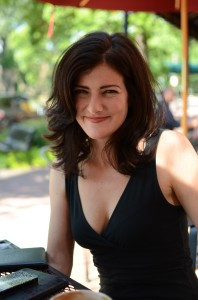Riley Adams's Blog, page 133
June 21, 2014
Twitterific Writing Links
by Elizabeth S. Craig, @elizabethscraig
Twitterific links are fed into the Writer’s Knowledge Base search engine (developed by writer and software engineer Mike Fleming) which has over 23,000 free articles on writing related topics. It’s the search engine for writers.
Facebook Ads: Should Indie Authors Buy Them? http://ow.ly/xV9PZ @CaballoFrances
Must Publishing Always Take Sides? http://ow.ly/yhjBE @Porter_Anderson @RLLafevers @thoughtcatalog
How to Build A Contact List To Grow A Relationship With Your Readers: http://ow.ly/xV8T3 @ebooksandkids
Exploring Story Worlds – How to get the most out of your research: http://ow.ly/xV98J @writers_write
If your family hates it when you write: http://ow.ly/xV9gd @kristaphillips
8 Things Not to Do When Pitching to an Agent: http://ow.ly/xSfdQ @LynnetteLabelle
10 Tips for Writing with Babies at Home: http://ow.ly/xSich @PatheosPagan
6 Subtle Ways to Increase Tension in Your Writing: http://ow.ly/xShi4 @RachelPhifer1
Bait-and-Switch for Self-Published Authors: http://ow.ly/xSh9e @victoriastrauss
How to Write Female and Male Characters: http://ow.ly/xShcA @LissyWrites
Book launch checklist: http://ow.ly/xSh1Y @Kelsye
Will I ever feel like a “Real” Writer? http://ow.ly/xSfhS @Alison_Stone
Why Living Hard Is Way Easier Than Writing Hard: http://ow.ly/xSinq @Authorlaura
Summer Writing for You, the Teacher: http://ow.ly/xSi78 @BethMooreTCRWP
Getting an Agent by Self-Publishing Your Manuscript: What Some Agents Think: http://ow.ly/xShyx @lindaepstein
How to write characters who are different than you: http://ow.ly/xSheI @sarahselecky
33 Unusual Tips to Being a Better Writer: http://ow.ly/xShoe @jaltucher
From White Page and Dark Space, Miracles Occur: http://ow.ly/xSflI @CLRozelle
6 Types of Character Flaws: http://ow.ly/xShr7 @mythcreants
Character Generators: http://ow.ly/xSh89
What are English Light Novels? A Stop For All To Learn About LN: http://ow.ly/xSh5e @OrganizationASG
Pan Macmillan’s Lloyd at FutureBook Hack: Ask what you can do for readers: http://ow.ly/yaJ0j @TheFutureBook @Porter_Anderson
Thematic Significance Statement Defines Every Story Decision: http://ow.ly/xSeJU @plotwhisperer
Quick Tips: Adverbial Dialogue Tags: http://ow.ly/xSePW @Savage_Woman
Query Question: more bad info, this time on self-pub and series: http://ow.ly/xSeV2 @Janet_Reid
Killing the Top Ten Sacred Cows of Indie Publishing: I Have To Sell Books Quickly: http://ow.ly/xSeGC @deanwesleysmith
Differentiation: A Book Marketing Must: http://ow.ly/xSeco @hanque99
Fast-Growing Independent Publishers, 2014: http://ow.ly/xSeSH @PublishersWkly
The Art of Writing for Games – Serving the Masters: http://ow.ly/yaGHD @timsbrannan
Quick Look: Writer Pro for iPad: http://ow.ly/xSegu @iPadInsightBlog
A Trick for Keeping Your Plot (and Story) on Target: http://ow.ly/xSekl @Janice_Hardy
Fiction Craft– Focusing the Camera: http://ow.ly/xSeF0 @wendylawton
Embracing the Digital Revolution: http://ow.ly/y2TzM @KristiBelcamino
In Defense of Typos: http://ow.ly/xSenO @io9
Yawn No More: Americans and the Market for Foreign Fiction: http://ow.ly/xSe6c @pubperspectives
Your Character is Lying: http://ow.ly/xSexX @JulieEshbaugh
The Emotion of Changing Your Mind: http://ow.ly/xSeN2 @mooderino
You Wrote a Book. Now What? http://ow.ly/xSeuT @jodyhedlund
How to Tell if Your Story is On Target: What’s —Your Book About in ONE Sentence? http://ow.ly/xSeAF @kristenlambtx
Writer’s Block? Use a Random Generator: http://ow.ly/xSerV @jamigold
Challenges that modern crime writers face in keeping stories credible: http://ow.ly/y7Z3h @mkinberg
When You Start Writing (Again) Only for You: http://ow.ly/xQnCF @novaren
Dissecting Your Characters: http://ow.ly/xQon6 @TerriLAustin
Novel Avoidance Syndrome: http://ow.ly/xQnlt @VictoriaLamb1
So You Want to Write a Love Triangle: http://ow.ly/xQm9g @shay_goodman
5 Ways to Create Conflict in Your Story: http://ow.ly/xQpyY @screencrafting
So You’ve Decided to Hire a Freelance Editor: http://ow.ly/xQpt1 @WritingRefinery
The Top 9 Writing Mistakes And How To Fix Them: http://ow.ly/xQpp6 @FutureofInk
How to Critique Others’ Writing: http://ow.ly/xQpO8 @writerdiaries
Writing Fiction: Facts v. Feeling: http://ow.ly/xQodx @lindasclare
15 questions for your beta readers — and to focus your own revisions: http://ow.ly/y7ITy @JodieRennerEd
5 Mistakes on the Way to Publishing Success: http://ow.ly/xQo2Q @CarmenConnects
7 things the most-highlighted Kindle passages tell us about American readers: http://ow.ly/xQnXh @voxdotcom
Best Books on Songwriting: http://ow.ly/xQn9f @natefancher
Written to Death: http://ow.ly/xQmU1 @VaughnRoycroft @writerunboxed
3 Ways to Pitch Your Novel (but not in the trash): http://ow.ly/xQo8E @lindasclare
Good Writing: No Matter Your Genre: http://ow.ly/xQnxA @JordanRosenfeld
The False Divide Between Book Promo and Author Promo: http://ow.ly/xQnsn @SharonBially @writerunboxed
Are you in danger of losing your readers’ suspension of disbelief? http://ow.ly/xQpBT @standoutbooks
Write Out Loud: How to Start Podcasting: http://ow.ly/xOui3 @cbramkamp @ninaamir
Scenes, Sequels, Sequences and Acts: http://ow.ly/xOvmp @woodwardkaren
When to Hire an Editor : http://ow.ly/xOuer @Savage_Woman
Scene: Fast or Fast-Paced? http://ow.ly/xOtOv @fictionnotes
3 Things to Know About Exposition & Telling: http://ow.ly/xOuKE @victoriamixon
How to prepare for the call: http://ow.ly/xOura @writerdiaries @ava_jae
Is Instagram Effective for Writers? http://ow.ly/xOwNR @carolewyer
How Can Your Characters Make Others Believe Them? http://ow.ly/xOtMF @skyefairwin
Should Secondary Characters Change? http://ow.ly/xOuz1 @mooderino
Location, Location, Location: http://ow.ly/xOuoo @janet_gover @womenwriters
4 story openings that put people off (and how to avoid them): http://ow.ly/xOuE3 @standoutbooks
Your Creativity Is like Any Other Muscle: http://ow.ly/xOv0n @99u
Do publishers see the value in audio? Listen for the consumer. http://ow.ly/y2T0A @Porter_Anderson @TheFutureBook @editoratfaber”
When you need a sidekick in your novel: http://ow.ly/xOu1G @writers_write
Choosing a look (Theme) for your WordPress site: http://ow.ly/xOu7S
Concocting Fiction from Fact: Using Research to Tell Better Stories: http://ow.ly/xOwLd @KeithCronin
5 Tips to Set a Better Scene: http://ow.ly/xOtV4 @novelrocket
Husband and wife sleuths in crime fiction: http://ow.ly/y3Fh9 @mkinberg
8 Ways to Beat Writer’s Block: http://ow.ly/xMsq3 @NatRusso
30 Famous Authors On Writing in Plain Language : http://ow.ly/xMqc4 @writers_write
Killing the Top Ten Sacred Cows of Indie Publishing: Put The Book Up and Leave It. | http://ow.ly/xMpQn @deanwesleysmith
FutureBook Hackers at work: Did we tell them enough? http://ow.ly/y2Tki @TheFutureBook @Porter_Anderson
11 Terrible Book Covers to Scare You Off Reading: http://ow.ly/xMqaj @MaxKnoblauch
How Audiobook Narration And Production Works (podcast): http://ow.ly/xMpTq @thecreativepenn
‘A Letter to Aspiring-Writer-Me from Debut-Novelist-Me’: http://ow.ly/xMuCu @nataliasylv @writerunboxed
10 Quick Ways to Feel Better With Fiction: http://ow.ly/xMpYy @tolstoytherapy
How to Vary Your Characters’ Voices: http://ow.ly/xVajS @LitCentralOC
7 tools of dialogue: http://www.writersdigest.com/online-editor/the-7-tools-of-dialogue @jamesscottbell
The Worse Advice You Can Take About Writing: http://ow.ly/xV8HO @DanaLeipold
Writers: Track Your Analytics and Measure Your Success: http://ow.ly/xV9XQ @CaballoFrances
5 Key Ways to Create a Character’s Distinct Voice: http://ow.ly/xV9cb @JordanDane
2 Dialogue Death Sentences & How to Get a Stay-of-Execution: http://ow.ly/xV9xx @MarcyKennedy
How To Be A Writer 101: http://ow.ly/xVatQ @davalynnspencer @SouthrnWritrMag
Semi-Professonally Pairing Books With Wine: http://ow.ly/xV9Jz @susangilmore
7 Reasons The Stuff You Post On Social Media Should Also Be On Your Website: http://ow.ly/xV93b @jspector
How to Know If You’re Editing Too Soon: http://ow.ly/xV8MI @losapala
Finding Motivation to Write: http://ow.ly/xV8PJ @maziebones
Scene Break vs. Chapter Break: How Do You Know? http://ow.ly/xVbs5 @ava_jae
3 Reasons You Need a Pen Name: http://ow.ly/xVbw5 @robinrwrites
How Do You Make a Good Story Worthy of Getting Past the Gatekeeper? http://ow.ly/xVb9n @karencv
3 tips for better scenes: http://ow.ly/xVcjw @lindasclare
Narrative Arc: Shaping Your Story: http://ow.ly/xVbX7 @fcmalby
How to Start Writing When You Won’t Start Writing: http://ow.ly/xVbCV @M_Richmond21
Themes That Develop Organically in Your Novel: http://ow.ly/xVc9U @CSLakin
Narrative Voice: http://ow.ly/xVaMZ @JoeMoore_writer
Story Structure… for Television: http://ow.ly/xVbZP @storyfix
The 5 best incentives authors can use to build an email list: http://ow.ly/xVbKu @alexhemus @standoutbooks
Unforgettable Writing: Use all 5 Senses to Add Emotion: http://ow.ly/xVbeY @OrlyKonigLopez
The Author Monthly Planner: A Freebie to Organize Your Writing and Marketing Life: http://ow.ly/xVc4V @duolit
Do You Need to Rethink Your Author Website’s Key Elements? http://ow.ly/xVaUH @Janefriedman
Why the Where Matters: http://ow.ly/xVbkI @sarahrcallender @writerunboxed
When You Write In Multiple Points of View: http://ow.ly/xVaZ0 @Margo_L_Dill
An Easy Exercise for Coming Up With Novel Ideas: http://ow.ly/xVbRu @Janice_Hardy @nownovel
4 Common Non-Fiction Title Cliches: http://ow.ly/y0Ugm @stevebenjamins
Self-Publishing Offers Hope for Diverse Authors Shut Out by Traditional Publishers: http://ow.ly/y0UMa @miralsattar
‘Every hour a glass of wine’ ––the female writers who drank: http://ow.ly/y0Uwq @olivialanguage @guardianbooks
Reunions in crime fiction: http://ow.ly/yhk2j @mkinberg
How To Conduct An Author Interview: http://ow.ly/y0Ue2 @write_practice
Will The Success Of Ebook Subscription Services Be Good For Publishers, Authors And Readers? http://ow.ly/y0Uke @jdgsaid
What 1 writer learned about landing an agent: http://ow.ly/y0TYw @MartinaABoone
Tips for creating a great villain: http://ow.ly/y0U2x @nownovel
Not all books and not all subscription services are created equal: http://ow.ly/y0UXZ @MikeShatzkin
Fine-Tuning a Manuscript–Comma Usage: http://ow.ly/yi727
Marketing Your Book Abroad? How About A Buddy System?Matchmaking for Writers: http://ow.ly/yhjpz @Porter_Anderson @mmatting
The post Twitterific Writing Links appeared first on Elizabeth Spann Craig.
June 20, 2014
Fine-Tuning a Manuscript–Comma Usage
Guest Post by Jack Smith
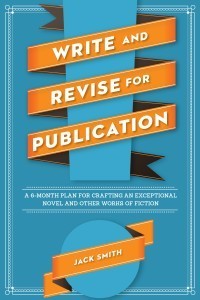
In fiction what is “correct” is what works—what creates strong characters, drives the story, and creates the appropriate tone. This applies to grammar and mechanics as well. I’ll have to admit, I do tend to be a bit schoolmarmy about the conventions of grammar and mechanics, but I also recognize when it’s important to depart from the standard handbook. A bullet train of comma splices might be desirable if you’re attempting to capture run-on thought. No punctuation at all might also be. When I’m editing my own work, as well as the work of others in my role as Fiction Editor for The Green Hills Literary Lantern, I tend to notice the following kinds of grammatical issues: subject-verb agreement, pronoun reference, misplaced modifiers, and, of course, matters of punctuation, which includes commas, semi-colons, colons, apostrophes, parenthesis—and more.
I’ll limit my comments here to commas. According to strict handbook rules and conventions, where should you use commas?
Before coordinating conjunctions (and, but, for, nor, or, so, and yet) between main clauses
After long phrases (generally 5 words or more) introducing main clauses
After subordinate clauses beginning with because, if, after, whereas, etc.
(Not before subordinate clauses that come after main clauses)
Between coordinate adjectives that modify a noun (e.g., tall, lanky man)
With appositives (e.g., James, a smart and ambitious man, has some serious goals.)
With direct address (e.g., All right, James, let’s discuss this.)
There are more comma issues to consider (non-restrictive and restrictive, for instance), but I won’t go into those. Let’s stop here.
Now, let’s say that you break handbook rules and conventions governing comma usage. Let’s say that your narrator states:
When James a man with a desire to obtain an education went to the city he usually went to a museum attended a concert or saw a play maybe it was Shakespeare maybe it was contemporary but he was let us say a great pursuer of the arts of all kinds.
Certainly from a strict schoolmarm perspective, this passage is loaded with comma “errors”—F work, for sure. Let’s look just at the comma usage—please ignore wording and anything else that might bother you. Stick to the comma question, and note where the standard handbook would call for comma insertions:
“When James, a man with a desire to obtain an education, went to the city, he usually went to a museum, attended a concert (,) or saw a play; maybe it was Shakespeare—maybe it was contemporary—but he was, let us say, a great pursuer of the arts of all kinds.
Notice that I placed parentheses around one comma since here it is optional. I used dashes to set off “maybe it was contemporary,” but I could have used commas. As to the rest, note commas around the appositive, the comma after the introductory subordinate clause, and the comma after the first item in the series. If I had used a comma before “maybe,” I would have a comma splice—a mechanical error by strict handbook rules. A comma is called for in the parenthetical phrase “let us say.”
Notice that not a single word is changed is this “corrected” version, and yet there’s a different feel achieved by supplying the commas, isn’t there? The first version is more loose and informal, the second more structured and formal. If your narrator is uneducated, perhaps the first version is better. Of course, these are two extreme versions; perhaps you leave out only few commas. Leaving out the comma after the introductory subordinate clause probably wouldn’t affect the tone very much. (And one could argue, even by strict handbook standards, it’s not that much of an “error” as long as the sentence is clear. On the other hand, if you leave out one of the commas in the appositive, that would certainly be a handbook error—and even appear to be a mistake to one who isn’t a handbook nut.) The comma splice wouldn’t have that much of an effect either. But here’s the point: The more you abide by, or bend, the rules and conventions, the greater the effect on style and tone—and the voice of your narrator. And keep in mind that the numerous rhythms and beats of words, phrases, and clauses, and even the appearance of the language itself on the page, the way passages are measured out, comma by comma, semi-colon by semi-colon, period by period—all this has a cumulative effect on your reader. Sometimes it’s hard to say exactly what that is, but as a reader you feel it.
There is no absolute right and wrong in fiction writing. It’s what works. When fine-tuning, use the handbook when it helps you create strong language; put it aside when it doesn’t.
Jack Smith is author of the novel Hog to Hog, which won the George Garrett Fiction Prize (Texas Review Press. 2008), and is also the author of Write and Revise for Publication: A 6-Month Plan for Crafting an Exceptional Novel and Other Works of Fiction, published earlier this year by Writer’s Digest. His novel ICON will be published in June by Serving House Books.
Prize (Texas Review Press. 2008), and is also the author of Write and Revise for Publication: A 6-Month Plan for Crafting an Exceptional Novel and Other Works of Fiction, published earlier this year by Writer’s Digest. His novel ICON will be published in June by Serving House Books.
Over the years, Smith’s short stories have appeared in North American Review, Night Train, Texas Review, and Southern Review, to name a few. He has also written some 20 articles for Novel & Short Story Writer’s Market, as well as a dozen or so pieces for The Writer. He has published reviews in numerous literary journals, including Ploughshares, Georgia Review, Missouri Review, Prairie Schooner, American Review, Mid-American Review, and the Iowa Review.
The post Fine-Tuning a Manuscript–Comma Usage appeared first on Elizabeth Spann Craig.
June 17, 2014
Embracing the Digital Revolution
By Kristi Belcamino, @KristiBelcamino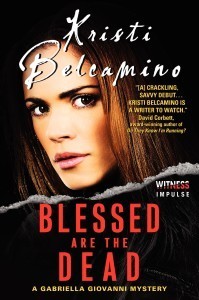
Writers dream of the day when they walk into a bookstore, see a book they wrote on the shelf, and then hold that book in their own two hands!
But what if a debut author is offered a digital-only book deal? Even if it is with one of the Big Five? No print book. What then? What does she do about that offer?
Well, she takes it!
At least I did.
I was beside myself, thrilled that an editor at one of the “big houses” liked my book. loved it even. At the same time, I had to let go of my dreams— holding my book in my hands, signing a physical book, and going cross-country on a grassroots book tour.
Instead, I had to think pragmatically and long-term, viewing every step I made as another one toward building a career as a writer instead of a flash-in-the-pan moment of ego-gratifying glory. I also realized that mystery readers—my readers—are huge into reading eBooks. All this meant taking the eBook deal.
But I must admit I clung to one tiny glimmer of hope within the fine print of my contract— some authors on the mystery imprint I was with would see a print version of their book. My contract explicitly stated, however, that there were no guarantees of a print version.
However, being the optimist that I am, I read that and thought, as Jim Carrey said in Dumb & Dumber, “So, you’re telling me I got a chance?”
Meanwhile, I wholeheartedly embraced this opportunity to get my book out into the world and began brainstorming ways to market it.
I’d heard of eBook authors giving author talks and then passing around an iPad so people could buy the book since there wouldn’t be a physical book to sell at the event, so I headed straight for the library and bookstores.
My favorite librarian told me that without a physical book, I could not do an author reading.
When I contacted bookstores, I heard the same thing:
No book. No author event.
I wondered if there was anything I could do to increase the chances of my book going to print, but suspected it all had to do with how sales of my book went. I understood that. It made sense. But I also know that I’m terrible at selling anything. At garage sales I usually give half of our things away (much to my husband’s chagrin).
I wondered how could I encourage people to buy my book without being a jerk? I’m still not sure. My answer was to tell people about my book on social media, trying to follow that 80/20 rule (80 percent NOT you or your book and 20 percent blatant self promo).
Meanwhile, as thrilled as I was to be working with one of the big five publishers, I still mourned letting go of my writerly dreams. For instance, when I visited my favorite bookstores, my stomach would sink a little realizing that even though my book was being published, it would not be on those shelves.
There were more discouraging moments:
My brother-in-law said he wouldn’t read my book unless it was in print.
A book editor at a daily newspaper said she only read printed books.
The editor of a mystery magazine said the same.
The resistance was disheartening.
Unlike people who self publish, there wasn’t even an option for me to have a print on demand book. It was up to the publisher whether to print copies of my book. Or not.
There was nothing I could do about it.
One day, I decided to ask once my publisher, once again, what needed to happen for me to see my book come out in print. This time, the answer was “There will be a print run.”
Say what?
How many?
Well, in the business, they call it a SPR, a small print run. I will have a book to hold in my hand. I will have books to sign. I may not be taking that grassroots book tour. I may not see my book in the big box bookstores.
But I will be able to have a book launch party at my favorite mystery bookstore, which has ordered the print book already!
I will be able to hold my book in my hands! I will be able to give author talks at the library! People, like my brother-in-law, will now read my book.
I will be able to—gasp—sign my book!
I had to adjust my dreams a little, but don’t we all. In the long run, I still count the way things worked out as a dream come true.
Kristi Belcamino is a writer, artist and crime reporter who also bakes a tasty biscotti. Her first novel, “Blessed are the Dead,” (HarperCollins June 2014) is inspired by her dealings with a serial killer during her life as a Bay Area crime reporter. As an award-winning crime reporter at newspapers in California, she flew over Big Sur in an FA-18 jet with the Blue Angels, raced a Dodge Viper at Laguna Seca, and watched autopsies. Find out more at www.kristibelcamino.com or on Facebook here: https://www.facebook.com/kristibelcaminowriter.
The post Embracing the Digital Revolution appeared first on Elizabeth Spann Craig.
June 15, 2014
Reassessing Goals at Mid-Year
by Elizabeth S. Craig, @elizabethscraig
I dislike resolutions, but I do like setting goals. I know that June isn’t the popular month for setting goals that January is, but it’s a great time to do a mid-year checkup on our goals.
If we’re not where we want to be, my advice is to scrap the January goals completely and start fresh. Feeling forced to play catch-up is really unpleasant.
The most important thing, I think, for writing goals is to make them no-brainers. Something so easy that we can pile up a bunch of successes in our goal-meeting. I’ll reiterate my advice for goal setting that I posted in January.
Three tips for making mid-year goals reachable:
Set goals for the rest of the year—and make them very easy to meet. See how modest you can make those goals and still reach your end-goal.
Break those goals down into small parts—small enough to be items on a to-do list or calendar. Instead of “finish my book,” I’ve found it’s more effective to break it down into smaller deadlines: “finish chapter ten by July 1,” (maybe accompanied with a note on the calendar) or list 10 ways to approach _____scene (a difficult scene we might be facing). Or even “write 15 minutes each day for 5 of the next 7 days.”
Track and post accomplishments. To me, this is key for keeping motivated. I keep ticked off items on my to-do list and print out online calendars that show past days’ completed items. Or we can post our progress on our blogs or websites.
To help with setting new goals, I’m linking to a free writing goals worksheet created by Gabriela Pereira at DIY MFA.
Have you ever done a mid-year goal check-in? What tips have you got for making goals manageable and sticking with it?
Image: MorgueFile: Dhester
The post Reassessing Goals at Mid-Year appeared first on Elizabeth Spann Craig.
June 14, 2014
Twitterific Writing Links
by Elizabeth S. Craig, @elizabethscraig
Twitterific links are fed into the Writer’s Knowledge Base search engine (developed by writer and software engineer Mike Fleming) which has over 23,000 free articles on writing related topics. It’s the search engine for writers.
Romance Writing: Description: Choosing the Right Words: http://ow.ly/xKUfJ @taliaqui
How to Keep Your Writing in Your Over-the-Top Busy Life: http://ow.ly/xKTBQ @writeabook
16 go-to sources for copyright-cleared images: http://ow.ly/xKTWl @KatelynPiontek
Tips for better-using MS Word: http://ow.ly/xKTDO @byondpapr
Should I Sit, Stand, Run, or Recline at My Desk? http://ow.ly/xKTnv @melaniepinola
Get the Scoop on Fair Image Usage: http://ow.ly/xKTRv @douglangille @beccapuglisi
Stretch Your Author Creative Capital a la Spanx: http://ow.ly/xKTwn @wherewriterswin
Choosing a pen name and connecting to one on Amazon: http://ow.ly/xKU6J @loislewauthor
Why Eimear McBride’s Prize-Winning ‘Girl’ Is Not On Sale In The US: http://ow.ly/xXKhD @Coffee_House_ @Porter_Anderson
Gearing up for #FutureBookHack: 5 Challenges: http://ow.ly/xXKzX @TheFutureBook @Porter_Anderson
What Is the Value of Traditional Publishers? http://ow.ly/xXL4T @Janefriedman
Frogs, Hot Water, and the 7 Deadly Sins: Making Trouble for Characters: http://ow.ly/xXLvM @manmartin1
Turning points in screen narratives: http://ow.ly/xKTHr @medkno
The Importance of Killer Sidekicks: http://ow.ly/xKTln @susanspann
How to Find Your Hidden Creative Genius: http://ow.ly/xKUbL @james_clear
Writing Historical Fiction for Dyslexic Readers: http://ow.ly/xKU1E @CarolineLawrenc
How To Succeed At Screenwriting: Set Goals: http://ow.ly/xKTYQ @gointothestory
12 Things You Were Not Taught in School About Creative Thinking: http://ow.ly/xKTJ2 @gointothestory
A Writer’s Block Breaker: 30 Songs For 30 Chapters: http://ow.ly/xKTKE @roniloren
Redefining Teen Romance: On Writing Sex, Love and Emotions: http://ow.ly/xKTNj @diymfa @wendyluwrites
Writing A Publishable Novel: What “Finally Getting It” Really Means: http://ow.ly/xKUid @storyfix
Narrative, Plot, and Story: http://ow.ly/xL3IO @writing_tips
Writing Your Memoirs: 3 Places to Find Two Days: http://ow.ly/xL3R0 @alainsworth
How to create tension in your writing: http://ow.ly/xL3ku @nownovel
Why Words Matter in Fiction and Story: http://ow.ly/xL3na @noveleditor
A complete guide to minimalist writing: http://ow.ly/xL3m8 @minimalstudent
Rejection letters publishers sent to 11 great authors: http://ow.ly/xL3Fa @IndoEnts
Instagram Gets Literary: http://ow.ly/xL3OZ @therivetermag
The Evolution Of Storytelling In Video Games: http://ow.ly/xL3tC @ParadeMagazine @willydubz
Dialogue Writing Tips from Bartleby Snopes: http://ow.ly/xL3Hu @A_WritersStudio
12 Things Every Indie Author Needs to Know: http://ow.ly/xL3yS @TherinKnite
Writing Hated Characters: A Study in Snape: http://ow.ly/xL3w5 @emilyekmurdoch
The 4 Worst Places for Freelance Writers to Start: http://ow.ly/xL3Gv @ticewrites
7 Lessons for Writers from The Fault in Our Stars: http://ow.ly/xL3qC @jeffgoins
Presence on the Page: What It Is, and What It Isn’t : http://ow.ly/xL3B5 @manzanitafire
Can You Describe Your Book Market? http://ow.ly/xL3pe @ninaamir
5 Reasons to Write a Short Book Fast: http://ow.ly/xMlpI @ninaamir
Author Website Design 101: http://ow.ly/xMlV6 @MKAlexander1
The Serious Novel isn’t Dead, It Won: http://ow.ly/xMl5s @mharoldpage
Writing in Plain Language – How to remove meaningless phrases: http://ow.ly/xMlex @writers_write
How To See If A Domain Name, or URL, Is Available: http://ow.ly/xMl1C @travisnward
8 Most Common Editing Errors In Self-Published Books: http://ow.ly/xMlwy @selfpubreview
How a Good TV Show Can Help You Write (and Edit) Your Novel : http://ow.ly/xMlsg @chicklitgurrl
The Dangerous Trap of Forced Writing: http://ow.ly/xMlB5 @Awesome_Dawn
Talents and Skills Thesaurus Entry: Basic First Aid: http://ow.ly/xMkLf @beccapuglisi
What Poets Know That Most Writers Don’t: http://ow.ly/xMl91 @schwamb
How to Buy an ISBN: http://ow.ly/xMkTA @travisnward
How to Pitch Yourself: Young Eudora Welty’s Charming Job Application to The New Yorker | http://ow.ly/xMlkx @brainpicker
5 Tips for Effective Author Marketing: Small is the New Big: http://ow.ly/xMlJv
An Agent Answers Questions: http://ow.ly/xMlDG @agentmilburn
Turning your poetry dabbling into a marketing tool: http://ow.ly/xMkX3 @magdalenaball
Will One Bad Book Ruin Your Career? http://ow.ly/xMlaA @jamesscottbell
5 Must Know Websites for the Independent Filmmaker: http://ow.ly/xMr7j @talenthouse
How Millennials Use Technology in Writing: http://ow.ly/xMszW @MSaintGermain
5 Experiences Writing Fiction Gives You (That Other Things Can’t): http://ow.ly/xMuLs @vgrefer
Screenwriting: Here’s Why Women-Driven Films Are Important: http://ow.ly/xMv11 @aokorycinski
Case Study: When Your Concept is Also a Paradox: http://ow.ly/xMq4w @storyfix
9 self-pub podcasts to listen to: http://ow.ly/xMqjs @AnthonyVenutolo
Finishing the Novel: Daily Task of “Getting it Done”: http://ow.ly/xMq1Z @elissafield
Is Writing Hard? 7 Ways to Make it Easier: http://ow.ly/xMsc7 @DeniseDrespling
7 Signs You Should Cut Your Prologue: http://ow.ly/xJeya @ava_jae
Writing: Find time or make time in 22 quick tips: http://ow.ly/xJdWc @rchazzchute
How to Put Together an Anthology: http://ow.ly/xJe9m @wickerkat
Character Flaws: http://ow.ly/xJe4m @ritahenuber
6 Things to Keep in Mind When Gathering Testimonials/Book Blurbs: http://ow.ly/xJdKs @writersdigest
Why Your Writing Sounds Weird (And What You Can Do About It): http://ow.ly/xJebN @joebunting
Are You the Writer’s Block? http://ow.ly/xJehD @BookEmDonna
Chekhov’s gun and the mental inventory: http://ow.ly/xJe0q @PhilAthans
Trust your Readers: http://ow.ly/xJez5 @karencv
The Secret Sauce for Indie Publishers: Attitude: http://ow.ly/xJe5P @ninaamir
Genres Promise Certain Emotions: Are you Keeping Your Promise? http://ow.ly/xJe1Z @fictionnotes
Working theme into novels: http://ow.ly/xJe6Y @CSLakin
3 Critical Steps to Writing Success: http://ow.ly/xJecB @jeffgoins
5 Motives For Animals in Fiction: http://ow.ly/xJdZf @pyrosama
These Writing Myths Will Keep You From Getting Published: http://ow.ly/xJeeS @jffelkins
Growing Readership By ‘Lighting Up Your Writing’: http://ow.ly/xJenf @Claudsy1
Humourous Quotes About Writing: http://ow.ly/xJe8j @blogher
5 Challenges for this weekend’s #FutureBookHack: http://ow.ly/xQqrA @RickJoyce @Porter_Anderson
Write a killer climax that leaves readers breathless: http://ow.ly/xHp6V @standoutbooks
Writing the Bittersweet Ending: http://ow.ly/xHnxA @mkhutchins
Manuscript Formatting and the Nuclear Option: http://ow.ly/xHptX @AuthorMelindaC
How to finally make it as a writer: http://ow.ly/xHp3V @jennaavery
3 Reasons Why Letters and Diaries Are Essential to Your Story: http://ow.ly/xHpwX @epbure
3 Cautions For Adding Research Into Stories: http://ow.ly/xHnv1 @jodyhedlund
Self Publishing Blog: http://ow.ly/xHppZ @bibliocrunch
What’s wrong with Your Story? On narrating a tale: http://ow.ly/xHoVR @davidfarland
How to Raise the Stakes in Our Story: http://ow.ly/xHoxd @jamigold
Burying the Hachette: http://ow.ly/xQq20 @writerunboxed @KeithCronin
5 Lessons from the Self-Publishing Front Lines: http://ow.ly/xHoBB @KerryGans
Control Your Life/Get Out of Yourself: http://ow.ly/xHnJW @katweyer
Giving Your Characters A Little Umph: http://ow.ly/xHplZ @larin20
Things Change and Yet Some Publishing Truths Remain the Same: http://ow.ly/xHpdh @author_sullivan
Contracts: One Little “s” Can Change Everything – Nelson Literary Agency: http://ow.ly/xHnsr
Superheroes conquer the literary novel: http://ow.ly/xHnBa @guardianbooks
Embrace Constraints: http://ow.ly/xHoHi @99u
A Screenwriter Answers Students: What’s the best way to break into the business? http://ow.ly/xHoqY @KenLevine
13 Essential Summer Reads According to Book Critics in 1852: http://ow.ly/xGxIj @nickgreene
Judging Short Fiction: http://ow.ly/xGxN6 @writerunboxed
Utilizing Deep POV: http://ow.ly/xMhc1 @cluculzwriter
The Amazon/Hachette Battle and Why It’s Great to Be a Self-Published Author: http://ow.ly/xGxDK @miralsattar
10 Reasons You Should Be Writing Memoir Right Now: http://ow.ly/xGxzR @manzanitafire
What Your Proposal Says about You: http://ow.ly/xGxuE @marygkeeley
How To Format Your Query in 5 Easy Steps: http://ow.ly/xB1fC @carlywatters
Lessons From Jane Eyre: 5 Ways to Bring Minor Characters to Life: http://ow.ly/xGxxO @KMWeiland
How to make our story more accessible: http://ow.ly/xMh2u @JacksBlackPen
8 Tips for Writers Using Pinterest: http://ow.ly/xB0T6 @CaballoFrances
Simon & Schuster Offers New Author Tools: http://ow.ly/xMvhz @lorcadamon
12 Dead Authors to Follow On Twitter: http://ow.ly/xB10f @parchmentgirl37
Fast and Easy Edits: http://ow.ly/xB1jR @DianeBohannan
8 Steps For Getting Started on a Writing Career: http://ow.ly/xGxSR @jodyhedlund
Advice From Seth Godin Every Writer Needs to Know: http://ow.ly/xGy1s @Adderworld
How To Upload & Sell Ebooks On Google Play: http://ow.ly/xGy87 @mollygreene
9 Books About Authors: http://ow.ly/xGy3Q @flavorwire
Why You Don’’t Need to Escape for Inspiration: http://ow.ly/xB1lp @monicamclark
How Do Publishers Decide What Books to Turn Into Audiobooks? http://ow.ly/xGxWA @voicesdotcom
4 Questions to Ask to Make Your Scenes Pop: http://ow.ly/xB1i5 @Janice_Hardy
How to Achieve Writing Goals: http://ow.ly/xB14S @carol_brill
Villages in crime fiction: http://ow.ly/xLgXL @mkinberg
The Green-Eyed Conference Monster: http://ow.ly/xB0FQ @jaelmchenry @writerunboxed
Tips for Loosening up Your Writing: http://ow.ly/xB0nK @jodierennered
5 Steps to a New Adult Sex Scene: http://ow.ly/xB03a @AuthorTiffany
Pros and cons of including profanity in a novel: http://ow.ly/xB0AK from Clever Girl Helps
How Should I Publish? http://ow.ly/xAZTi @AuthorU
How to finally make it as a writer: http://ow.ly/xB0hA @jennaavery
4 Pieces of Facebook Advice You Can Ignore: http://ow.ly/xB0Ob @lisahallwilson
14 Common Mistakes With Prepositions: http://ow.ly/xz58o @Writers_Write
When the character doesn’’t know he’’s going to arc: http://ow.ly/xB0je @JordanMcCollum
Go Ahead—–Ignore Your Novel! http://ow.ly/xB0uL @cbramkamp
Writing ‘Rules’: Start in the Middle of Action: http://ow.ly/xz5hl @HGComan
Can authors get smarter with Amazon keywords and categories? Start here: http://ow.ly/xz4JI @roz_morris
Know Why You’’re Submitting Your Writing: http://ow.ly/xz4MK @NathanielTower
Medium admits pay-per-click isn’’t the best way to pay writers: http://ow.ly/xz5OY @mathewi
How to write an interesting prologue: http://ow.ly/xz5Zs from Clever Girl Helps
Agents vs editors: http://ow.ly/xz5nl @thebookseller
The Best Way to Deal With Emotional Conflict When Writing: http://ow.ly/xz3rZ @gemmaleehawdon
Put More Strings in Your Writing Bow: http://ow.ly/xz4xt @jamesscottbell
3 Reasons Why Writers Should Keep A Sentence-A-Day Journal: http://ow.ly/xxUH2 @clarissadraper
Avoid “Zero Days” to Form Better Habits: http://ow.ly/xz3Dd @calldrdave @lifehacker
How Do Different Characters Express Emotion? http://ow.ly/xxUTQ @skyefairwin
4 Writing Tips for Better Writing: http://ow.ly/xxUq4 @StratusInteract
10 writer’s tools that got 1 writer writing again: http://ow.ly/xxUO6 @writingmytruth
Be a better writer in 15 minutes: 4 TED-Ed lessons on grammar and word choice http://ow.ly/xxUe5 @TED_ED
7 Tips on Getting Book Reviews: http://ow.ly/xxUxH @travisnward
How To Hook Your Audience: http://ow.ly/xz4gv @PretenderSteve @CraigVanSickle1
How to handle character change slowly through the story’s course: http://ow.ly/xz4uc from Clever Girl Helps
Facing The Ying-Yang of Publishing Fears: http://ow.ly/xz3Oz @JulieeJohnsonn
Plotting, Pacing, and Crossing Over: http://ow.ly/xz4Bv @AnneGBrown
A quick test to determine if your protagonist is too static or unrealistic: http://ow.ly/xz3TO from Clever Girl Helps
How To Write For the 21st Century Reader: 6 Tips to Modernize Your Prose: http://ow.ly/xz4HW @annerallen
The Secret To Pixar’s Success: Failure: http://ow.ly/xz4cg @buzzfeed
Pick up the Pace for a Real Page-Turner: http://ow.ly/xxV9f @jodierennered
How Can Your Characters Make Others Believe Them? http://ow.ly/xxV47 @skyefairwin
When book sales are slow…: how to keep motivated: http://ow.ly/xx7jw @Roz_Morris
Creativity and Chaos: 3 ways organization gets your passion project off the ground: http://ow.ly/xx5GU @blinkist
Creating Matriarchies: http://ow.ly/xxbKI @mythcreants
The War Between ‘Authors’ and Writers: http://ow.ly/xx4FG @BV @vpostrel
Why 1 Writer Isn’t Publishing Paperbacks: http://ow.ly/xxakH @MikeWellsAuthor
Self-published authors: where you live doesn’t matter: http://ow.ly/xxbzr @chrisrobley
Tips for writing villains–villain theory: http://ow.ly/xxa5H from Clever Girl Helps
Editor’s Eyes: Writing Advice from Don Draper: http://ow.ly/xx9OK @KateBrauning
Dani Shapiro on Vulnerability, the Creative Impulse, the Writing Life, and How to Live with Presence: http://ow.ly/xx4SY @brainpicker
The Best Sounds for Getting Work Done http://ow.ly/xx9UL @kevinpurdy
Publishing’s southerly migration at BEA (and gnashing of teeth): http://ow.ly/xHfxP @Porter_Anderson
Gay Characters in Comics: The Bumpy Road of Marvel Comics in the Mid-2000s: http://ow.ly/xv4yV @GeeksOUT
Becoming Your Own Book Editor: 4 Tips For Better Book Editing: http://ow.ly/xv4tO @ebooksreloaded
Tips for writing a genius/prodigy: http://ow.ly/xx9kf from Clever Girl Helps
The Independence of Indie Authors: http://ow.ly/xx5hu @JFBookman
Google Yo’ Bad Self – The Importance of Online Branding in Comic Book Marketing (and Other Genres): http://ow.ly/xv6A2 @niftymat
The wonderful world of villains: http://ow.ly/xuYN4 @momentumbooks @hildebrandburke
Scriptwriting–Sequence Breakdowns–The Wizard of Oz (1939) http://ow.ly/xuYFJ @TheScriptLab
The power of your writing: http://ow.ly/xv1pD @wynlim
Most Common Writing Mistakes: Describing Character Movements: http://ow.ly/xuZ3N @KMWeiland
How to Launch a Comic Book Series: An Introduction: http://ow.ly/xuYBm @niftymat
Experimental Fiction and Independent Publishing: http://ow.ly/xv4ke @SaraWielenberg
Don’t throw in the towel if your books aren’t selling: | Book Marketing Professionals: http://ow.ly/xusHG
Narrative Voice: http://ow.ly/xut23 @JoeMoore_writer
3 Patterns To Find In (or Write Into) Fiction: http://ow.ly/xusOx @vgrefer
Indie Authors Quitting Their Day Jobs: http://ow.ly/xusll @passivevoiceblg
3 Tips How to Reduce You Editing Costs: http://ow.ly/xuYTV @111publishing
Top 5 Elements of a Great Slasher Film: http://ow.ly/xv1ta @HorrorFreakNews
Why is my book not selling? Here are some reasons and how to fix them: http://ow.ly/xuYVJ @standoutbooks
10 steps to surviving being a writer: http://ow.ly/xusoM
Winning at Monopoly: http://ow.ly/xuscy @HughHowey
5 Things Rocky Taught a Writer About Knockout Main Characters: http://ow.ly/xusRx @Write_Tomorrow
Shakespeare Invented 1,700 Of Our Everyday Words: http://ow.ly/xusVx
8 Tips For Perfect Pitches & Super Selling Documents: http://ow.ly/xusdy @bang2write
7 Item To-Do List for Amazon Author Central Profile: http://ow.ly/xushA @Jason_Matthews
BEA’s Author Hub for Self-Publishers: Upbeat and Positive: http://ow.ly/xDMAT @Porter_Anderson
How Diverse are Comics and Graphic Novels? http://ow.ly/xtBfw @BrigidAlverson @SLJournal
A new initiative to encourage women writers to pitch their writing: http://ow.ly/xtAV0 @waouwwaouw
Hatred of Publishing: A Conversation Between Industry Dropouts: http://ow.ly/xtB6F @therejectionist @jenpanic
Twitter Trumps Facebook For Driving Book Sales: http://ow.ly/xtAHs @jeffbercovici @forbes
Why Free Is Your Best Marketing Tool (And How to Harness It): http://ow.ly/xtB9s @bookgal
James Patterson BEA Fail: http://ow.ly/xtAoW @jakonrath
How to build a successful mystery series: http://ow.ly/xtA2d @cbcbooks
Don’t look back on your writing journey & regret the choices you made, pay attention now: http://ow.ly/xtAMS @ediemelson
Michael Crichton’s Method for Plotting Out a Story: http://ow.ly/xtBjF
Author’s Eye-view of a book conference: http://ow.ly/xtBdk @andimarquette
5 Ways To Succeed in the German Market: http://ow.ly/xtAdt @wordswithjam
Anti-Heroes: Why Devious is so Delectable, and Where are all the Women? http://ow.ly/xtAaU @msheatherwebb @writerunboxed
Is Publishing is the New Blogging? http://ow.ly/xtAyT @selfpubreview
6 Reasons to Write a Short Story: http://ow.ly/xtjuD @Julie_Glover
Beginning a Story: What Has to Be There: http://ow.ly/xtAsT @Margo_L_Dill
When Should You Self-Publish Your Book? http://ow.ly/xt5nl @CriticalMargins
Why Too Many Flashbacks Might Be a Warning of Deeper Story Problems: http://ow.ly/xt5ko @kristenlambtx
5 Ways to Fuel your Imagination: http://ow.ly/xt5he @M_Richmond21
Are Video Games the New Novel? http://ow.ly/xt5ud @johnmichaelbell
Which Drawers to Open: A Writer’s Boundaries: http://ow.ly/xt5HS @AndiLit
Top 10 novels inspired by Shakespeare: http://ow.ly/xt5KQ @sallyoreilly
How to Create Twitter-sized Bites http://ow.ly/xt5yv @ava_jae
#Twitter #hashtags for novices: http://ow.ly/xt5zV @carolewyer
Narcissism: Is Your Villain in Love With Himself? http://ow.ly/xt5OB @FionaQuinnBooks
Barnes and Noble Will Stop Selling Audiobooks July 1st: http://ow.ly/xz708 @Goodereader
10 Things to Consider When Revising Your Novel: http://ow.ly/xt5pS @AlienNextDoor
5 Ways to Create Likable Characters: http://ow.ly/xt5j7 @janice_hardy
Script To Screen: “Flight”: http://ow.ly/xt5lk @gointothestory
Developing Multiple Income Streams: http://ow.ly/xt5xl @FinishedPages
2 Things to Get Right: Categories and Keywords: http://ow.ly/xt5mi @niniehammon
Openly Gay in YA: 4 Characters to Know Now: http://ow.ly/xt5p0 @missriki
Trademark Tips for Writers: http://ow.ly/xt5FV @robinrwrites
Publishers Weekly to Integrate Self-Published Reviews in Book Reviews Section: http://ow.ly/xx6jF @galleycat
Adjusting to a Summer Writing Schedule: http://ow.ly/xxdUM
Publishers’ Deal with the Devil (on DRM): http://ow.ly/xsDZU @stratechery
Questions to ask to determine if an idea can be developed into a book: http://ow.ly/xsCN5 @aswinn @writerunboxed
The Talk Of BEA: Amazon Blogs About Hachette: http://ow.ly/xxhg7 @Porter_Anderson @thoughtcatalog
3 Ways to Get More Honest Reviews for Your Book: http://ow.ly/xsERe @Self_Publish
Come Up With a Killer Story Concept–Before You Start Writing: http://ow.ly/xsEDP @kmweiland
The Art of Neil Gaiman: http://ow.ly/xsCPG @brainpicker @neilhimself
Using Your eBook Writing Folders Effectively: http://ow.ly/xx9A1 @gpstberg
8 Essentials Tips for a Successful Book Reading by a Self-Published Author: http://ow.ly/xsCR5 @judy_croome
If it comes easy, it’s probably a cliché: http://ow.ly/xsCSf @JoeMoore_writer
Focus on ‘an Audience of One’ to Avoid Creative Fear: http://ow.ly/xsDlp @WhitsonGordon
Crowdsourcing Your Way To What Customers Really Want–Courtesy Of Teen Romance Novelists: http://ow.ly/xsCUr @lvanderkam @fastcompany
Character Talents and Skills: Fishing: http://ow.ly/xxdFw @angelaackerman
10 Observations on Book Expo America from the Author Hub: http://ow.ly/xx60g @bob_mayer
Story Writing From Start To Finish: Don’t Get Lost In The Middle: http://ow.ly/xsEP7
The New Literary Fiction Superstars Are Essentially Memoirists: http://ow.ly/xsDHf @michelledean
The Publishing Timeline: http://ow.ly/xsCWc @RachelLKent
4 Ways to Sift Through Writing Advice: http://ow.ly/xvOHf @LyndaRYoung
How Do You Make Ideas Into A Book? http://ow.ly/xsEGu @nataliewhipple
3 Tips for Your Marketing Campaign: http://ow.ly/xsEmL @marygkeeley
Author Interviews: Why We Hate Them: http://ow.ly/xsDen @DianthaJones
Crime fiction involving art theft and forgery: http://ow.ly/xvOT3 @mkinberg
How 1 Writer Started Another Novel to Help Write His Current Novel : http://ow.ly/xsEj9 @BTMargins
Subscription services for ebooks progress to becoming a real experiment: http://ow.ly/xsEqV @MikeShatzkin
What a Freelance Editor Can (and Can’t) Do for You: http://ow.ly/xsEXU @jenichappelle
7 Surprises On The Hero’s Path: http://ow.ly/xnO2C @ibelieveinstory
5 Steps Toward Your Truest Contribution: http://ow.ly/xnNPP @kcraftwriter
Why Quieter Stakes Are Easier to Plot With: http://ow.ly/xnNpl @Janice_Hardy
Be a Collector of Ideas: http://ow.ly/xnNdd @Awesome_Dawn
‘Zero-Based Thinking’ for Writers: http://ow.ly/xnN4F @MattEEaton
5 Marketing Strategies for Writers Who Hate Promoting Their Own Work: http://ow.ly/xnNm2 @hughosmith
Choosing a Point of View Character: http://ow.ly/xnND2 @Janice_Hardy
The post Twitterific Writing Links appeared first on Elizabeth Spann Craig.
June 12, 2014
Frogs, Hot Water, and the Seven Deadly Sins: Making Trouble for Characters
by Man Mart
in,
@manmartin1
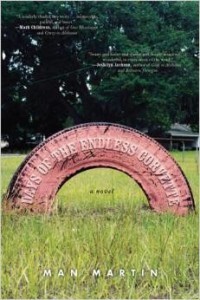
I’ve been reading students’ unpublished novels for a summer class I’m teaching alongside Nancy Zafris at Kenyon College in Ohio. Again and again, I see the same fundamental flaw: the characters refuse to get into trouble. This is understandable. Most of us – except for the hopelessly neurotic – are very good at avoiding trouble. This isn’t to say we run from challenges, but trouble itself we stay out of. If there are difficult people with whom we can’t get along, we either stay out of their way entirely or deal with them on a superficial level, being as outwardly courteous as we can stand. We do not take deliberate actions to sabotage our love lives or our careers. For the most part, we obey the law. We don’t embezzle funds or commit murder.
No one should get into trouble if there’s any way to avoid it. Trouble makes everyone unhappy. Trouble prevents us from self-fulfillment. Trouble causes stress and migraines. Trouble is just too much trouble.
The trouble is, trouble is precisely what your characters have to get into. Ahab can’t say, “Whew! That durn whale chawed off my leg! I’m staying on shore from here on!” Romeo can’t say, “Juliet’s the daughter of my enemy? Uh-oh, better steer clear of her!” Humbert Humbert can’t say… Well, ahem, you get the idea.
I remember as a child, when someone in a book or tv show pulled some especially bone-headed maneuver, asking my mother, “Why did So-and-So do that?” What I was really asking was, why would anyone do something that was only guaranteed to get them deeper into trouble? My mother’s wise response was, “Well, if they didn’t do that, we wouldn’t have a story.”
That’s the key to the whole thing. Characters can’t just be in trouble – they have to get into it by their own wilful actions. No trouble, no story. That’s the genius of Huck Finn; Jim is escaping slavery on the Mississippi which heads south; the longer they’re on the river, the deeper into trouble they go.
The story of our lives is largely one of how we stayed out of trouble, or managed to get out of trouble with a minimum of pain once we got into it. In fiction, it’s just the opposite: it’s characters getting into trouble in the first place, and making it as bad as possible for themselves before they get out, if they ever do. So how does a writer, who like any healthy human being, is a gifted trouble-avoider, create a character who gets into trouble?
When it comes to getting characters in trouble, writers have an external knob they can twist and an internal one. The external knob is the outside circumstances. If a character is marooned in a lifeboat with nothing but another shipmate and a book called, 101 Tasty Recipes for Shipmate, you know he’s going to get into trouble and you have a pretty clear idea of what kind of trouble. The internal Knob is your character’s propensities. The Seven Deadly Sins are a virtual how-to list for making people get into trouble. Envy, Greed, Wrath, and Lust are perennial favorites, and, of course, Pride was the go-to among the Ancient Greeks. For some reason, not many writers use Gluttony or Sloth, but even those have been done.
There’s a saying that if you put a frog in a pot of water and turn the heat up slowly, the frog will boil to death, never realizing the temperature is changing. As a writer, you don’t want to do it that way. Get the water as hot as you can as quickly as you can, and stoke your frog with sufficient Wrath, Pride, Envy or whatever to make him jump.
And that’s where your story begins.
Man Martin is two-time winner of Georgia Author of the Year for Days of the Endless Corvette, and Paradise Dogs. He blogs daily at manmartin.blogspot.com
The post Frogs, Hot Water, and the Seven Deadly Sins: Making Trouble for Characters appeared first on Elizabeth Spann Craig.
June 8, 2014
Tips for Attacking Any Big Project
By Elizabeth S. Craig, @elizabethscraig
I don’t know if y’all operate the same way, but I will allow large projects that I know will be time-sucks slide for a while…years, usually…until I finally end up squaring my shoulders and attacking them with gusto.
So…I decided to start out my summer (it’s summer here in North Carolina, anyway) with a photo and scrapbook organizing project. This is the sort of project where there are drawers of loose photos from the 1960s, 1970s, and even unarchived family pictures from the early part of the 20th century. There are tremendous stacks of still-framed photos from many decades ago and from various branches of the family tree. And many, many pre-digital photos of my children in no order. Oh, and school papers of varying degrees of appeal and sentimental importance dating back to preschool (and my elder child is entering his senior year of high school this August).
Yes, there are lots of stacks of things in my den right now. I’m tossing, keeping, digitizing non digital, making reference notes about people and situations in some photos, and uploading to clouds.
Similar to any writing-related project, there usually comes a point in these organizing projects where I wonder what the heck I was thinking. The temptation to put it aside and return to something easier (laundry, vacuuming, unloading-reloading endless loads of dishes into the dishwasher) is incredibly appealing because small-scale housework rewards us with an immediate improvement. An immediate feeling of accomplishment and ticking something off a list. With a photo or scrapbook organizing project, things look worse before they start looking better. A lot worse. The same thing goes with a first draft—it can look a lot worse than the pristine, unwritten story in our heads.
But I keep on plugging, just like I do with the book projects. I apply the same structure to both. It’s a pretty basic approach:
Devise a strategy. Deadlines help. I like to keep these goals really manageable, but make sure that the goal is hit every day. And I like to have an end date on my calendar for completion. I don’t want to feel like my house is going to be Photo Central for months. Same idea applies to a book.
Set a timer. It helps with focus to know that we’re clocked in only for a certain amount of time.
Show up. Religiously. It’s the only way to get through a project.
Avoid perfectionism. Okay, when I’m digitizing photos by taking pictures of pictures? It’s not perfect. But it’s a whole lot better than the photo being buried in a guest room drawer for decades. First drafts aren’t perfect either. But aren’t they better than the blank page?
Eliminate distractions. Put that smart phone in another room. Don’t have the internet up on the laptop.
Make lists of things to do. For my photo project, it looks like: make 3 stacks…toss, keep, digitize/upload. For my writing, it might be: Finish chapter two. List 5 possible suspects who would want to get rid of my mystery’s victim. List 3 red herrings to point away from the real killer. Describe the story’s central setting in 3 different ways.
Avoid going off on tangents. Because once I emptied out that big drawer in the guest room, it looked like a good spot to organize my gift wrap in. Don’t go there. Wait until the project itself is done. For me, it works best for writing, too–I don’t edit/fix stuff until the first draft is completely done.
Fight the overwhelm. Remember how far we’ve come since the start of our project. If this is a home improvement or organizing project, it helps to take a picture of the “before”, just to remind us. If its writing–remember that blank page and the first words we wrote down.
Celebrate successes. It’s easy to feel like the project or book will never be finished. If we’re always looking ahead of us, we head right back into that overwhelm that I just mentioned. Keeping goals small and celebrating successes can help us stay motivated.
Structure is key to keeping me on track. But others do better with less structure. How do you attack big projects—home or writing-related? And…any photo project organizing tips or software you can recommend? :)
Image: MorgueFile: Alvimann
The post Tips for Attacking Any Big Project appeared first on Elizabeth Spann Craig.
June 7, 2014
Twitterific Writing Links
by Elizabeth S. Craig, @elizabethscraig

Twitterific links are fed into the Writer’s Knowledge Base search engine (developed by writer and software engineer Mike Fleming) which has over 23,000 free articles on writing related topics. It’s the search engine for writers.
Creating Matriarchies: http://ow.ly/xxbKI @mythcreants
Tips for writing villains–villain theory: http://ow.ly/xxa5H from Clever Girl Helps
Self-published authors: where you live doesn’t matter: http://ow.ly/xxbzr @chrisrobley
Why 1 Writer Isn’t Publishing Paperbacks: http://ow.ly/xxakH @MikeWellsAuthor
Creativity and Chaos: 3 ways organization gets your passion project off the ground: http://ow.ly/xx5GU @blinkist
The War Between ‘Authors’ and Writers: http://ow.ly/xx4FG @BV @vpostrel
When book sales are slow…: how to keep motivated: http://ow.ly/xx7jw @Roz_Morris
7 Tips on Getting Book Reviews: http://ow.ly/xxUxH @travisnward
How Can Your Characters Make Others Believe Them? http://ow.ly/xxV47 @skyefairwin
Be a better writer in 15 minutes: 4 TED-Ed lessons on grammar and word choice http://ow.ly/xxUe5 @TED_ED
10 writers’ tools that got 1 writer writing again: http://ow.ly/xxUO6 @writingmytruth
4 Writing Tips for Better Writing: http://ow.ly/xxUq4 @StratusInteract
How Do Different Characters Express Emotion? http://ow.ly/xxUTQ @skyefairwin
Avoid “Zero Days” to Form Better Habits: http://ow.ly/xz3Dd @calldrdave @lifehacker
Pick up the Pace for a Real Page-Turner: http://ow.ly/xxV9f @jodierennered
3 Reasons Why Writers Should Keep A Sentence-A-Day Journal: http://ow.ly/xxUH2 @clarissadraper
The Secret To Pixar’s Success: Failure: http://ow.ly/xz4cg @buzzfeed
Put More Strings in Your Writing Bow: http://ow.ly/xz4xt @jamesscottbell
The Best Way to Deal With Emotional Conflict When Writing: http://ow.ly/xz3rZ @gemmaleehawdon
How To Write For the 21st Century Reader: 6 Tips to Modernize Your Prose: http://ow.ly/xz4HW @annerallen
A quick test to determine if your protagonist is too static or unrealistic: http://ow.ly/xz3TO from Clever Girl Helps
Plotting, Pacing, and Crossing Over: http://ow.ly/xz4Bv @AnneGBrown
Facing The Ying-Yang of Publishing Fears: http://ow.ly/xz3Oz @JulieeJohnsonn
How to handle character change slowly through the story’s course: http://ow.ly/xz4uc from Clever Girl Helps
How To Hook Your Audience: http://ow.ly/xz4gv @PretenderSteve @CraigVanSickle1
Agents vs editors: http://ow.ly/xz5nl @thebookseller
How to write an interesting prologue: http://ow.ly/xz5Zs from Clever Girl Helps
Medium admits pay-per-click isn’t the best way to pay writers: http://ow.ly/xz5OY @mathewi
Know Why You’re Submitting Your Writing: http://ow.ly/xz4MK @NathanielTower
Can authors get smarter with Amazon keywords and categories? Start here: http://ow.ly/xz4JI @roz_morris
Writing ‘Rules: Start in the Middle of Action: http://ow.ly/xz5hl @HGComan
14 Common Mistakes With Prepositions: http://ow.ly/xz58o @Writers_Write
4 Pieces of Facebook Advice You Can Ignore: http://ow.ly/xB0Ob @lisahallwilson
Editor’s Eyes: Writing Advice from Don Draper: http://ow.ly/xx9OK @KateBrauning
Dani Shapiro on Vulnerability, the Creative Impulse, the Writing Life, and How to Live with Presence: http://ow.ly/xx4SY @brainpicker
The Best Sounds for Getting Work Done http://ow.ly/xx9UL @kevinpurdy
Publishing’s southerly migration at BEA (and gnashing of teeth): http://ow.ly/xHfxP @Porter_Anderson
Gay Characters in Comics: The Bumpy Road of Marvel Comics in the Mid-2000s: http://ow.ly/xv4yV @GeeksOUT
Becoming Your Own Book Editor: 4 Tips For Better Book Editing: http://ow.ly/xv4tO @ebooksreloaded
Tips for writing a genius/prodigy: http://ow.ly/xx9kf from Clever Girl Helps
The Independence of Indie Authors: http://ow.ly/xx5hu @JFBookman
Google Yo Bad Self – The Importance of Online Branding in Comic Book Marketing (and Other Genres): http://ow.ly/xv6A2 @niftymat
The wonderful world of villains: http://ow.ly/xuYN4 @momentumbooks @hildebrandburke
Scriptwriting–Sequence Breakdowns–The Wizard of Oz (1939) http://ow.ly/xuYFJ @TheScriptLab
The power of your writing: http://ow.ly/xv1pD @wynlim
Most Common Writing Mistakes: Describing Character Movements: http://ow.ly/xuZ3N @KMWeiland
How to Launch a Comic Book Series: An Introduction: http://ow.ly/xuYBm @niftymat
Experimental Fiction and Independent Publishing: http://ow.ly/xv4ke @SaraWielenberg
Don’t throw in the towel if your books aren’t selling: | Book Marketing Professionals: http://ow.ly/xusHG
Narrative Voice: http://ow.ly/xut23 @JoeMoore_writer
3 Patterns To Find In (or Write Into) Fiction: http://ow.ly/xusOx @vgrefer
Indie Authors Quitting Their Day Jobs: http://ow.ly/xusll @passivevoiceblg
3 Tips How to Reduce You Editing Costs: http://ow.ly/xuYTV @111publishing
Top 5 Elements of a Great Slasher Film: http://ow.ly/xv1ta @HorrorFreakNews
Why is my book not selling? Here are some reasons and how to fix them: http://ow.ly/xuYVJ @standoutbooks
10 steps to surviving being a writer: http://ow.ly/xusoM
Winning at Monopoly: http://ow.ly/xuscy @HughHowey
5 Things Rocky Taught a Writer About Knockout Main Characters: http://ow.ly/xusRx @Write_Tomorrow
Shakespeare Invented 1,700 Of Our Everyday Words: http://ow.ly/xusVx
8 Tips For Perfect Pitches & Super Selling Documents: http://ow.ly/xusdy @bang2write
7 Item To-Do List for Amazon Author Central Profile: http://ow.ly/xushA @Jason_Matthews
BEA’s Author Hub for Self-Publishers: Upbeat and Positive: http://ow.ly/xDMAT @Porter_Anderson
How Diverse are Comics and Graphic Novels? http://ow.ly/xtBfw @BrigidAlverson @SLJournal
A new initiative to encourage women writers to pitch their writing: http://ow.ly/xtAV0 @waouwwaouw
Hatred of Publishing: A Conversation Between Industry Dropouts: http://ow.ly/xtB6F @therejectionist @jenpanic
Twitter Trumps Facebook For Driving Book Sales: http://ow.ly/xtAHs @jeffbercovici @forbes
Why Free Is Your Best Marketing Tool (And How to Harness It): http://ow.ly/xtB9s @bookgal
James Patterson BEA Fail: http://ow.ly/xtAoW @jakonrath
How to build a successful mystery series: http://ow.ly/xtA2d @cbcbooks
Don’t look back on your writing journey & regret the choices you made, pay attention now: http://ow.ly/xtAMS @ediemelson
Michael Crichton’s Method for Plotting Out a Story: http://ow.ly/xtBjF
Authors Eye-view of a book conference: http://ow.ly/xtBdk @andimarquette
5 Ways To Succeed in the German Market: http://ow.ly/xtAdt @wordswithjam
Anti-Heroes: Why Devious is so Delectable, and Where are all the Women? http://ow.ly/xtAaU @msheatherwebb @writerunboxed
Is Publishing is the New Blogging? http://ow.ly/xtAyT @selfpubreview
6 Reasons to Write a Short Story: http://ow.ly/xtjuD @Julie_Glover
Beginning a Story: What Has to Be There: http://ow.ly/xtAsT @Margo_L_Dill
When Should You Self-Publish Your Book? http://ow.ly/xt5nl @CriticalMargins
Why Too Many Flashbacks Might Be a Warning of Deeper Story Problems: http://ow.ly/xt5ko @kristenlambtx
5 Ways to Fuel your Imagination: http://ow.ly/xt5he @M_Richmond21
Are Video Games the New Novel? http://ow.ly/xt5ud @johnmichaelbell
Which Drawers to Open: A Writer’s Boundaries: http://ow.ly/xt5HS @AndiLit
Top 10 novels inspired by Shakespeare: http://ow.ly/xt5KQ @sallyoreilly
How to Create Twitter-sized Bites http://ow.ly/xt5yv @ava_jae
#Twitter #hashtags for novices: http://ow.ly/xt5zV @carolewyer
Narcissism: Is Your Villain in Love With Himself? http://ow.ly/xt5OB @FionaQuinnBooks
Barnes and Noble Will Stop Selling Audiobooks July 1st: http://ow.ly/xz708 @Goodereader
10 Things to Consider When Revising Your Novel: http://ow.ly/xt5pS @AlienNextDoor
5 Ways to Create Likable Characters: http://ow.ly/xt5j7 @janice_hardy
Script To Screen: “Flight”: http://ow.ly/xt5lk @gointothestory
Developing Multiple Income Streams: http://ow.ly/xt5xl @FinishedPages
2 Things to Get Right: Categories and Keywords: http://ow.ly/xt5mi @niniehammon
Openly Gay in YA: 4 Characters to Know Now: http://ow.ly/xt5p0 @missriki
Trademark Tips for Writers: http://ow.ly/xt5FV @robinrwrites
Publishers Weekly to Integrate Self-Published Reviews in Book Reviews Section: http://ow.ly/xx6jF @galleycat
Adjusting to a Summer Writing Schedule: http://ow.ly/xxdUM
Publishers’ Deal with the Devil (on DRM): http://ow.ly/xsDZU @stratechery
Questions to ask to determine if an idea can be developed into a book: http://ow.ly/xsCN5 @aswinn @writerunboxed
The Talk Of BEA: Amazon Blogs About Hachette: http://ow.ly/xxhg7 @Porter_Anderson @thoughtcatalog
3 Ways to Get More Honest Reviews for Your Book: http://ow.ly/xsERe @Self_Publish
Come Up With a Killer Story Concept–Before You Start Writing: http://ow.ly/xsEDP @kmweiland
The Art of Neil Gaiman: http://ow.ly/xsCPG @brainpicker @neilhimself
Using Your eBook Writing Folders Effectively: http://ow.ly/xx9A1 @gpstberg
8 Essentials Tips for a Successful Book Reading by a Self-Published Author: http://ow.ly/xsCR5 @judy_croome
If it comes easy, it’s probably a cliche: http://ow.ly/xsCSf @JoeMoore_writer
Focus on ‘an Audience of One’ to Avoid Creative Fear: http://ow.ly/xsDlp @WhitsonGordon
Crowdsourcing Your Way To What Customers Really Want–Courtesy Of Teen Romance Novelists: http://ow.ly/xsCUr @lvanderkam @fastcompany
Character Talents and Skills: Fishing: http://ow.ly/xxdFw @angelaackerman
10 Observations on Book Expo America from the Author Hub: http://ow.ly/xx60g @bob_mayer
Story Writing From Start To Finish: Don’t Get Lost In The Middle: http://ow.ly/xsEP7
The New Literary Fiction Superstars Are Essentially Memoirists: http://ow.ly/xsDHf @michelledean
The Publishing Timeline: http://ow.ly/xsCWc @RachelLKent
4 Ways to Sift Through Writing Advice: http://ow.ly/xvOHf @LyndaRYoung
How Do You Make Ideas Into A Book? http://ow.ly/xsEGu @nataliewhipple
3 Tips for Your Marketing Campaign: http://ow.ly/xsEmL @marygkeeley
Author Interviews: Why We Hate Them: http://ow.ly/xsDen @DianthaJones
Crime fiction involving art theft and forgery: http://ow.ly/xvOT3 @mkinberg
How 1 Writer Started Another Novel to Help Write His Current Novel : http://ow.ly/xsEj9 @BTMargins
Subscription services for ebooks progress to becoming a real experiment: http://ow.ly/xsEqV @MikeShatzkin
What a Freelance Editor Can (and Can’t) Do for You: http://ow.ly/xsEXU @jenichappelle
7 Surprises On The Hero’s Path: http://ow.ly/xnO2C @ibelieveinstory
5 Steps Toward Your Truest Contribution: http://ow.ly/xnNPP @kcraftwriter
Why Quieter Stakes Are Easier to Plot With: http://ow.ly/xnNpl @Janice_Hardy
Be a Collector of Ideas: http://ow.ly/xnNdd @Awesome_Dawn
‘Zero-Based Thinking’ for Writers: http://ow.ly/xnN4F @MattEEaton
5 Marketing Strategies for Writers Who Hate Promoting Their Own Work: http://ow.ly/xnNm2 @hughosmith
Choosing a Point of View Character: http://ow.ly/xnND2 @Janice_Hardy
Should Authors Stick To One Genre? An Interview With Linda Gillard: http://ow.ly/xmZ8S @joannegphillips
3 Times You Should Stop Writing: http://ow.ly/xmYmC @EmilyWenstrom
“It’s Complicated.” (Wrong Answer.) http://ow.ly/xnNJ5 @DavidCorbett_CA @writerunboxed
The post Twitterific Writing Links appeared first on Elizabeth Spann Craig.
June 5, 2014
An Update on How Various Publishing Platforms and Approaches are Going
By Elizabeth S. Craig, @elizabethscraig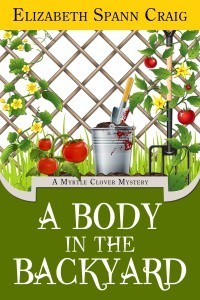
Just a quick wrap-up today of my thoughts on various formats/platforms I’m using to reach readers, an idea for a format I might explore in the future, and a general thought on the production process.
Wattpad: Wattpad lists free books, so I can’t gauge if it’s having an impact on the sales of my other books. But it’s been an interesting experience for me so far because I’m reaching a completely different audience than I ordinarily do, by decades. So I’m at 131 reads right now (woo-hoo!) and these are folks who probably don’t usually read my genre…maybe I can even help introduce a few new readers to cozy mysteries.
Amazon Foreign Sales: Japanese Amazon sales are suddenly, inexplicably, as strong as my European sales. Absolutely no idea why.
Nook, Smashwords, Apple: Steady sales but not nearly in the same league as the Amazon sales. Nook is usually about 5% of my Amazon sales.
ACX: I have no quibbles here because what I make at ACX (audiobooks) is pure profit—I invested nothing in the production, having chosen a royalty share deal with my narrators. ACX has also recently branched into the international community (more information on that in Joanna Penn’s May 1 post, “Audiobooks: Tips For Distribution With ACX And Marketing Ideas”). I’m unhappy that they lowered royalty rates (covered here in Porter Anderson’s March 6 article, “A Most Audible Alarm: ACX Chops Royalties”), which gave me the uneasy feeling like…well, like Amazon could do the same for their ebooks. But that’s why I’m diversifying. In addition, ACX’s sales can be pesky (audiobook authors don’t set price) because it does mean lost revenue. But, in all, I make a decent income there with my four books…and again—it’s all profit since I sunk nothing into production.
Print: Always steady sales. It’s almost exactly a year since I branched my self-pubbed books into print on CreateSpace—it was the best decision I made. Again, I do have an older readership which may have contributed to the success, but the one-time investment of cover design (adapting the ebook cover to a print cover with a spine and back cover) and formatting was certainly worth it for me.
Production-related thoughts: I’m effectively approaching work like my trad. publisher does and contract book design labor before the current WIP is finished as long as my outline seems pretty firm and I’m not going off in some crazy, unplanned direction. Since I’ve had to wait on covers before because designers so quickly get booked, this has helped me out the two times I’ve done it now.
Summing it all up…I’m still thinking diversifying is key to what we’re doing. Not having an all-our-eggs-in-one basket approach. Trying different things. Figuring out different approaches with production.
Hugh Howey effectively blew my mind the other day with his May 28 post, “The Beauty of Booktrack.” This isn’t necessarily a way that I want to experience books (with a soundtrack), but I can totally see how it could be very appealing to other people, especially younger readers. His post introduces Booktrack a bit. There’s more information here (FAQ) and here (video tutorials). It’s free and your book must be listed free there.
That’s my run-down on what trends I’m seeing currently with my own sales as we head into the summer months. Are you looking into trying any different formats for your books? Have any insights into what’s working or not for you and your books?
The post An Update on How Various Publishing Platforms and Approaches are Going appeared first on Elizabeth Spann Craig.
June 1, 2014
Adjusting to a Summer Writing Schedule
By Elizabeth S. Craig, @elizabethscraig
Summer. In some ways, it’s a relief to me because it means I don’t have to keep up as much with the kids’ activities and school-related needs. But it’s also a time that I regroup. Because our schedule changes, I’ve found it’s better and I get more done if I’m flexible enough to change my schedule, too.
A blog reader asked me if I could write a little bit about how I’ve changed my summer writing schedule in the past. Considering I’ve changed it up since my nearly-13-year-old was one, I’m thinking I’m probably qualified to comment on this issue. :) But a proviso that this won’t work obviously for all kids or all parents.
Ages and stages:
Toddlerhood (and preschool is out). I put my kids in preschool very early. When she was at home (and not much of a napper, ever), I kept my page goal to one double-spaced page a day….so around 250 words. I found I could hit that pretty easily by two different methods—Sesame Street (she only liked Elmo, though, so I had to pretty much put Elmo on repeat for the 20 or so minutes a page took me at the time) and “nap time” which meant that she and I needed a mental health break from each other and she would have quiet time in her crib with board books for 20 minutes.
The thing I don’t think you want to do here is make a complicated goal. Make the goal a no-brainer. If you go over the goal, great, but make sure the next day is a clean slate and you hit your goal again. Don’t sweat missed goals…just pick up as usual the next day without trying to make up for it.
Elementary school:
My kids were always early risers and so I either needed to get up even earlier than they did (which I could sometimes accomplish), or else I needed to write with them around. So here were my methods:
Set a visible reminder that I was working: a sign on the door (a drawing or with words, depending on the age group) and a timer that was ticking. And I’d make sure to explain that I could be contacted if it were an emergency. I gave many examples of potential emergencies and examples of things that were not emergencies. Mystery writer Alan Orloff had a wonderful idea for keeping children away when you need to work. He puts a sign on his office door that says: Please come in so we can get started on chores.
Rewarding them by playing a game or reading a book if they were good while I wrote/worked for those 20 or 25 minutes.
Writing earlier than they arose (depending on the age, again, this could be tricky). If your kids stay up late at night during the summer, see if it’s possible to put your sign/timer outside the door and have a quick writing session (I’m not great in the evenings, so this was less-successful for me).
Writing in a crowd. Although this may sound counterintuitive, I found that if I invited my children’s friends over, put a bunch of snacks and drinks out, and then retreated to the background with my computer, I could actually get a lot done. The friends will need to be the sorts who aren’t fond of drama and aren’t easily bored.
Older elementary school/middle school:
Writing on the go. Again, this meant bringing friends into the equation. It also meant that I couldn’t care what I looked like in public. I took the kids and their friends to the indoor skating rink, bowling alley, or indoor inflatables business, put snacks and drinks out and worked on my laptop. Found some interesting characters to write about then, too. I’ve also written at the swimming pool…with my laptop. Sometimes a notebook is better at the pool, as long as I didn’t write beyond the point where transcribing it would be a pain.
A note on this—I got extraordinary amounts of work done this way. I think being at home can be more distracting than being in public with a bunch of people. I’m not sure why.
Other considerations:
Can we cut back for a summer schedule? Maybe not with our writing, but can we cut back whatever promo or social media or blogging we’re doing?
Can we keep our writing and writing-related tasks relegated to certain times of the day so that we don’t feel as if we’re not doing fun family things? Can we make an official quitting time so we’re not dragging everything out throughout the day?
I think cutting back on blogging during challenging times works really well…the key is to let readers know what our new schedule is. We could announce it on our blogs, put it in our sidebars, etc.
For me this means:
I’m still planning on beating everyone up to write. Instead of 4:45 a.m., this may fall back to 6:00 a.m.
I’ll be blogging each Monday and Friday in addition to my Sunday Twitterific and an occasional Wednesday guest blogger on my blog (so cutting out one blogging day during the summer–probably until September).
I may post a lighter Twitter feed during the summer (other bloggers cut back in summers, too, making content sometimes more difficult/time-consuming to locate/curate). So instead of scheduling 18 tweets, maybe it will be down to 14.
I’m going to make sure my kids (who are 17 and almost-13 now) understand when I’m working. I’m sure it’s frequently hard for them to tell. When I’m on a laptop, I could be doing almost anything: responding to an email, reading blogs, writing blog posts, working on my book, or checking news sites. If I have 25 or 30 uninterrupted minutes, I can get so much done.
That being said, I need to make sure that the 25 or 30 minute blocks are totally focused. So I need to disconnect my Wi-Fi if I think I might cheat. No being distracted by bright, shiny objects online.
I’ll try to make sure that when I’m with my kids and husband, I’m completely present when I’m “off duty” for the writing related work.
If I’m traveling, I’ll write earlier than my hosts get up. It’s good to start the day with an accomplishment.
I may reassess what I’m doing after a month.
This was a parent-centric post, but many writers experience other types of schedule interruptions in the summer—vacation, travel, the allure of being outside when the weather is nice, etc. How are you adjusting your schedule for summer—if you are?
Image: MorgueFile: shannontanski
The post Adjusting to a Summer Writing Schedule appeared first on Elizabeth Spann Craig.

